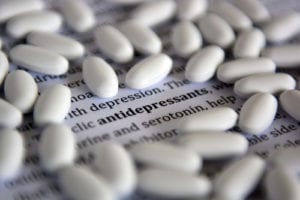Although mental health and addiction both require recovery, their attitudes toward using medication are strictly distinct. While addressing addiction calls for an element of abstinence, more severe psychological conditions require pharmaceutical practices in order to ensure stability. However, if people struggling with mental illness become too reliant on their prescription use, treating their disorder can unintentionally lead to a substance use disorder.
Rising prevalence of prescription drug abuse
Although there has been a decline in the most recent years, prescription drug abuse and addiction have become an equal threat to public health as illicit substance use. Results from the 2014 Monitoring the Future study show that after marijuana, medications like Adderall and Vicodin account for the most commonly consumed substances by 12th-grade students. As a result of these trends, over 2 million Americans struggle with opioid substance use disorders and the rate of overdose has risen to 10.4 per 100,000 for people between the ages of 45 and 54.
Further research from the National Institute on Drug Abuse goes on to say that pain medications can result in effects similar to heroin use when taken in higher doses or unintended manners. In fact, approximately half of youthful populations that use heroin reported abusing prescription opioids before.
What about antidepressants?
In the clinical opinion of Deborah Serani, Ph.D., a psychologist known as “Dr. Deb” online, antidepressants evoke a unique form of dependence in users. According to Serani, “Antidepressants are not addictive in the way that most people would use the word. You don’t ‘crave’ your antidepressant. However, the medicine that gets introduced to your central nervous system becomes something your body recognizes each day. So stopping medication without the guidance from a professional can cause your body to react to the loss of these neurotransmitters.”
Extensive studies conducted by Margrethe Nielsen, Ph.D., provide evidence of this addictive consequence. After observing the effects of SSRI pills and benzodiazepines over a four-year period, Nielsen and a team of fellow researchers found that people experience similar withdrawal symptoms when they discontinue their prescribed dosage. From these results, Nielsen conclude it is necessary to categorize SSRI drugs as addictive.
While professionals like Serani and Nielsen cite these withdrawal symptoms as the evidence of addiction, others disagree. Lars Vedel Kessing, M.D., at the Psychiatric Centre Copenhagen upholds a set of needed criteria in order to classify a condition as addiction:
- Personal control is replaced by a compulsive desire to take the drug
- Also known as tolerance, the dosage of a substance must be continually increased to get a desired effect
- A strong urge to obtain more of the drug so it can be consumed without anyone’s knowledge
- The individual is no longer able to function socially of physically due to excessive use
As one of California’s few certified residential facilities for providing primary mental healthcare, Avalon Malibu stands out from conventional treatment. Our luxury residential treatment programs offer a haven environment, nestling our two beautiful homes on a breathtaking estate above the iconic Malibu coastline. Call us today for information on our holistic approach to treatment and our full continuum of care options: 888-958-7511











